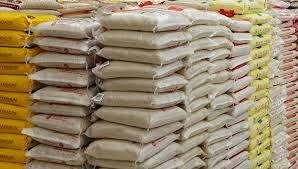Two years after losing its place as the world’s biggest rice exporter, Thailand is eyeing a return to the top spot as the impact of a bungled subsidy scheme eases and it sells cheaper grain to a grateful global market.
The subsidy, which offered farmers up to 50 percent above market rates for their rice, helped former premier Yingluck Shinawatra win the rural votes she needed to take office in 2011.
But it also sent tremors through the world market before spectacularly unravelling, leaving Thailand with around 18 million tonnes of over-priced rice and Yingluck skewered by a corruption charge.
Thailand was pushed off the top spot by India in 2012, as buyers hit back at the kingdom’s attempt to fund the costly subsidy by driving up global prices through grain hoarding.
India and Vietnam moved swiftly to gobble up Thailand’s crumbling market share, with the Indian government rapidly releasing more of their own rice for export.
Thailand’s junta, which seized power in May, ended the rice scheme soon after the coup and is flogging stockpiles to soften the price of Thai rice to around $450 a tonne — comparable to India and Vietnam.
Many now predict the kingdom’s industry is again set to surge.
“I’m sure we can get back our world title this year,” said Chookiat Ophaswongse, honorary president of the Thai Rice Exporters Association.
- Getting back to the top -
From January until September 2, the kingdom sold seven million tonnes of the grain — already more than for the whole of 2013 — according to Chookiat.
It should sell 10 million tonnes by the end of the year, as experts call for farmers to focus on producing higher quality — and higher value — strains of rice.
Darren Cooper, senior economist at the London-based International Grains Council, said it is “quite possible (Thailand) could edge out India in 2014″, explaining the kingdom has already begun to reclaim portions of the key African market it lost — such as Nigeria, Ivory Coast and Ghana.
“The real story will be next year when I think Thailand will be easily the world biggest exporter,” he said.
Much also depends on India, Cooper added, after New Delhi flooded lower premium rice to the export market to off-set the retreat of the Thai grain and avert a feared global food crisis.
Thailand’s military rulers are talking tough on the kingdom’s subsidy culture — including rice and other major exports such as rubber.
They have paid most of the farmers, hundreds of whom took to the streets, after they were left out of pocket as banks refused to lend cash to Yingluck’s stricken administration to keep the scheme going.
But to wean farmers off handouts they are focusing on lowering production costs, including of fertilisers and machinery.
The junta has “requested the co-operation” of suppliers to cut costs, said Paitoon Urairong, deputy director general of the rice department at the Ministry of Agriculture and Cooperatives.
It is a request companies have “agreed” to do, he said, emphasising the need for farmers to grow premium rice — rather than the lower quality grains of the last few years.
While the loss of large state handouts is upsetting farmers, some experts say greater efficiency is to be welcomed.
“It’s much healthier to assist farmers by providing input subsidies like seeds and other agricultural input,” said Hiroyuki Konuma, regional representative for Asia and the Pacific for the UN Food and Agriculture Organization.
Hiroyuki also lauded a shift towards grains with higher market prices such as jasmine and organic rice.
- ‘It’s all gone’ -
Critics pilloried Yingluck’s flagship rice policy for damaging Thailand’s biggest export by paying farmers for large harvests irrespective of the quality.
To the protesters who occupied Bangkok’s streets for the months in the run-up to May’s coup, the policy was a cynical act of populism which tapped state finances purely to shore up Yingluck’s rural base in the north and northeast.
Yingluck was found guilty of negligence linked to the scheme and now could face impeachment proceedings that may see her banned from politics.
But she denies wrongdoing and insists the policy was a well-intentioned attempt to raise the income of Thailand’s rural poor that was scuppered by her political rivals.
Now, the junta’s stance on subsidy is sending jitters across the countryside.
The proposal to slash production costs is “not enough”, says Prasit Boonchoei, president of the Rice Farmers Association.
According to him, farmers need to invest an average of 6,500 baht ($200) per rai (1,600 square metres) to produce 800 kilogrammes of rice.
That harvest is worth between 7,000 to 8,000 baht, well below a decent 10,000 baht return, he explains.
This week the junta offered one-off cash payments of around 1,000 baht per rai to ease farmers’ woes, but the maximum payment of 15,000 baht falls well short of the guaranteed income from the rice subsidy.
From his farm in Nakhon Pathom province, near Bangkok, Praneet Pinthin says the end of the subsidy has forced to him to withdraw his $4,600 savings to cover rising costs.
“It has all gone,” he told AFP, adding he was now in debt — which the new pay-out will not ease
- Culled from: http://www.vanguardngr.com


No comments :
Post a Comment
we will love to share your experience: